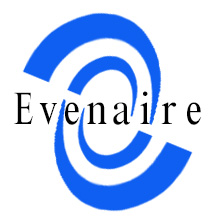Purchasing your first home is thrilling. You’re likely trying to keep track of numerous details about making the right choice. We believe that understanding your potential new HVAC system is crucial. The property’s HVAC system represents a substantial investment and potential source of long-term costs, which is why due diligence should be a top priority for first-time homebuyers.
In this guide, we’ll share seven tips for learning everything you can about a home’s heating and cooling setup. And if you want a deeper opinion from the pros, don’t hesitate to contact Evenaire Heating & Air Conditioning. Our seasoned technicians can weigh in on your options with industry insights you won’t find elsewhere.
1. What Type of HVAC System Is It?
Start by determining what specific HVAC system the home includes. Furnaces tend to last longer compared to air conditioners, and newer types of HVAC systems like heat pumps feature average life spans that are even longer. Knowing the make and specific model gives you a clear understanding of how much maintenance it will require.
2. What Is the Current System’s Age?
It also helps to learn how old the HVAC system is when you’re considering a potential new home. For the most part, HVAC systems tend to run for about 10-12 years. Learning its approximate installation date helps you plan for possible repair needs or considerations if it might break down. Older systems may be more vulnerable to problems, so fiscal planning for a replacement unit might be needed faster than expected.
3. Is the Warranty Still in Effect?
Be sure to check the HVAC system is covered by a warranty. If it is, you’ll appreciate how it can lower maintenance costs. HVAC warranties should take care of parts and labor, but specifics will vary. Make sure you go over any terms that seem confusing to ensure you understand your coverage and the likelihood of out-of-pocket costs.
4. Has the System Ever Been Professionally Serviced or Maintained?
Take a close look at the maintenance history of the HVAC system, if this kind of history is accessible. This kind of information can reveal if the repair needs are high or how much upkeep was provided. Inquire about key tasks such as changing the air filter, which means it enjoyed more regularly scheduled tune-ups.
5. Do You Know Its Energy Efficiency Ratings?
Purchasing a home with a heating and cooling system with high energy efficiency isn’t just smart; it leads to lower utility bills and less of an impact on the environment. Look for the seasonal energy efficiency ratio (SEER) ratings for air conditioning as well as the annual fuel utilization efficiency (AFUE) for furnaces. High SEER ratings mean more efficient cooling throughout the season, while higher AFUE ratings indicate that the fuel is efficiently converted into useable heat.
6. Have You Noticed Signs of Problems During Your Inspection?
Even if you don’t have the know-how of an HVAC technician, you should still inspect the HVAC system yourself. Keep an eye out for signs of problems that haven’t been mentioned by the seller. This can mean bizarre noises, unequal airflow and attempts to hide any obvious damage.
7. Have You Asked Your Local HVAC Professional?
If you’re not quite sure about the overall state of the HVAC system, it’s never a bad idea to get input from experienced HVAC professionals. They can spot things you might miss, like leaks in the refrigerant, damage to the wiring or damaged ductwork.
A Consultation with Evenaire Heating & Air Conditioning Simplifies Your Home-Buying Journey
Selecting your first home should be thrilling, and Evenaire Heating & Air Conditioning will do everything possible to ensure that doesn’t change. Reach out with us at 512-337-4337. We can discuss how our HVAC services ease your mind, giving you what you need to step into your new home with confidence.



